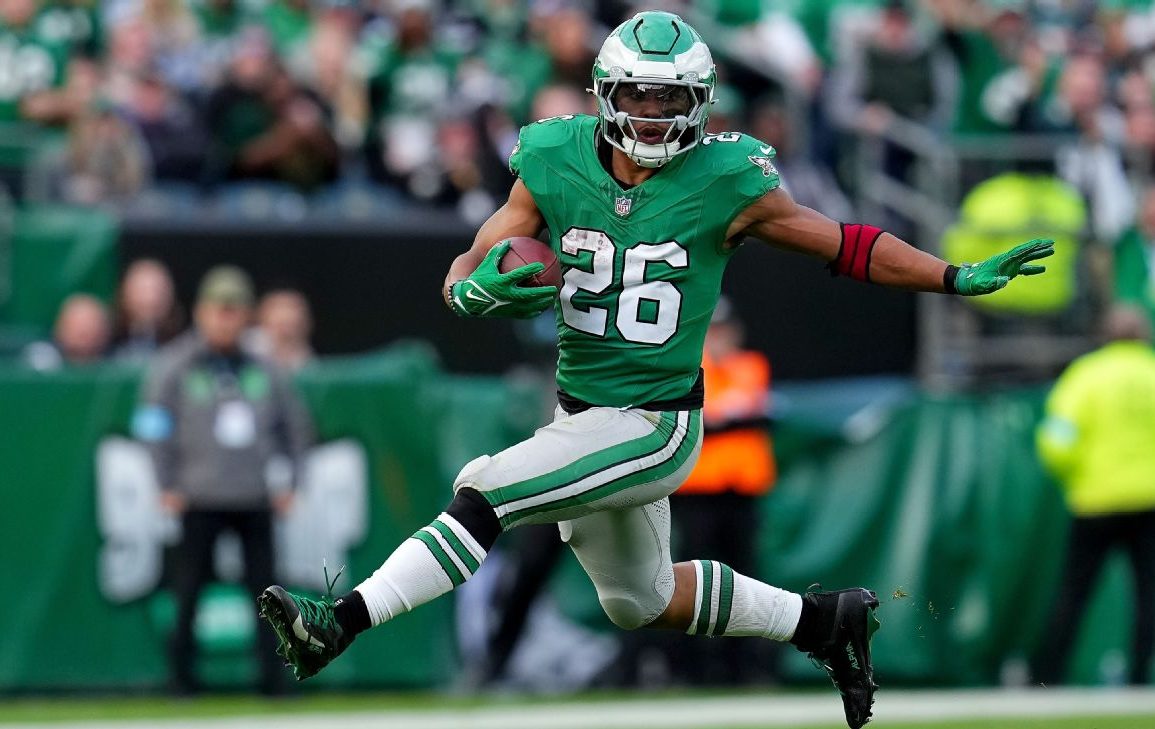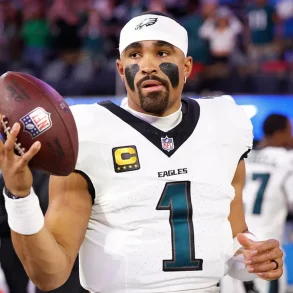Saquon Barkley has emerged as both a leader on the field and in the locker room for the Super Bowl-winning Philadelphia Eagles. With his recent two-year, $41 million contract extension, he hopes to set a precedent for younger running backs to secure higher paydays.
Barkley emphasizes that his contract is about elevating the position rather than individual earnings. He wants rising stars like Bijan Robinson, Jahmyr Gibbs, and James Cook to surpass his deal when their time comes, ensuring fair compensation for future generations of running backs.
Barkley Sets New Standard, but Running Back Market Remains Stagnant for Veterans
Barkley’s extension makes him the only running back earning a $20 million annual average, surpassing Christian McCaffrey’s previous high of $19 million per year. His contract is a significant milestone in an era where running backs have struggled to secure long-term, lucrative deals.
While his success is a step in the right direction, the overall market for the position remains relatively stagnant, especially for free-agent running backs who are unlikely to receive top-dollar contracts.

The 2024 free-agency period highlights the continued struggles of running backs to secure high salaries. Former first-round pick Najee Harris signed a one-year contract worth up to $9.25 million with the Chargers, while veteran Aaron Jones agreed to a two-year deal averaging $10 million per year with the Vikings.
These contracts indicate that while Barkley has pushed the market forward, many veteran backs are still struggling to command elite-level salaries.
Challenges and Opportunities for the Next Generation of Elite Running Backs
Younger running backs such as Robinson, Gibbs, and Cook have a better chance of reaching Barkley’s financial milestone due to their talent, draft pedigree, and versatility. Cook has even expressed interest in securing a $15 million per year contract.
However, Barkley’s journey to a $20 million deal was not easy, as he endured multiple franchise tags and a less-than-ideal free-agent contract before finally securing his payday. His experience underscores the difficulties running backs face in achieving financial security.
The 2025 NFL Draft is expected to introduce more talented running backs, but the cost-controlled nature of rookie contracts may further slow the growth of running back salaries.
While Barkley’s contract represents progress, the fight for fair compensation continues. He remains hopeful that his deal will serve as a catalyst for change, allowing future running backs to negotiate more lucrative contracts and ensuring the position receives the respect it deserves.







